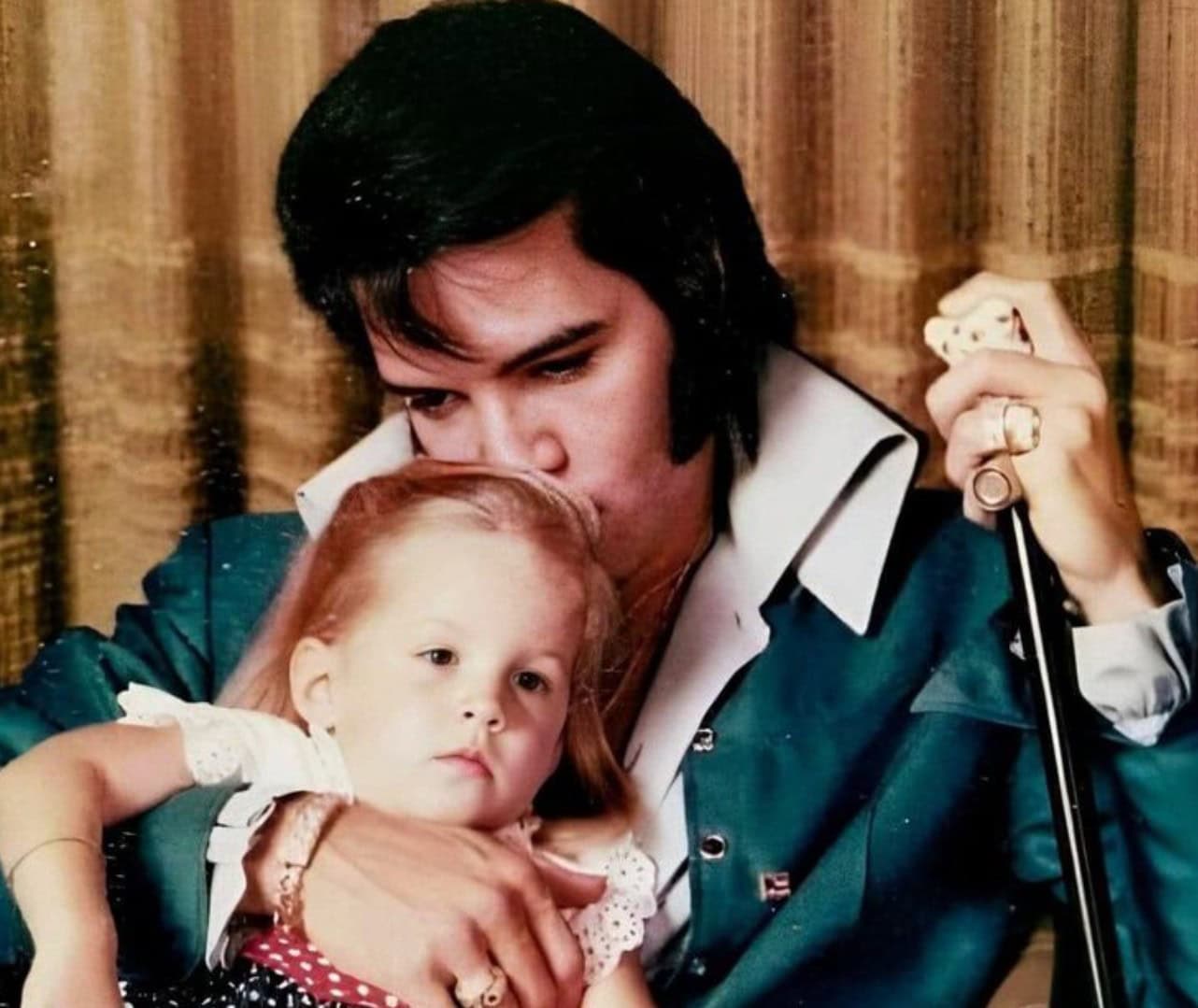
Fear lived alongside the music for Lisa Marie Presley as a child — a small, persistent shadow threading through afternoons that elsewhere were gilded by stardom. Though the world knew Elvis Presley as the King of Rock ’n’ Roll, his daughter carried an intimacy with him that mixed adoration and dread, captured in a single, heartbreaking line from a childhood poem:
“I hope my daddy doesn’t die.” — Lisa Marie Presley, in a childhood poem
That confession, simple and raw, reframes a public life in private terms. The family home, the backstages, the gold records — they were the setting for ordinary vulnerabilities. Lisa watched her father not only from the front row at concerts but in the private moments when he seemed “out of it,” distant or faint. Those scenes left an imprint: a child’s steady worry that the man she loved might vanish.
Yet music softened those anxieties. The same voice that packed arenas also soothed a child at the kitchen table. Elvis’s performances for Lisa were not showmanship; they were intimate gifts, short reprieves from the weight of fame and from the fear that hovered at the edge of her childhood. Two songs stood out in those memories — “Hurt” and “How Great Thou Art” — not as hits on the radio but as lullabies that restored a sense of safety.
Witnesses who knew the family say those private renditions revealed a different side of the superstar. He could be imperious on stage and fragile at home, a duality that confused and comforted the little girl who needed him most.
“He could be a public force and a private father; when he sang to Lisa, the show dropped away and she felt safe.” — Priscilla Presley, mother of Lisa Marie Presley and former spouse of Elvis Presley
The contrast is what makes the images so affecting for older readers who remember the era: a global icon, adored by millions, sitting on a living-room couch, offering his child the simplest possible reassurance — his voice. Those small concerts did not make headlines, but they shaped Lisa Marie’s sense of who her father really was: flawed, human, capable of tender care.
The emotional ledger of those years is dense. Pride and love balanced fear. The childhood poem’s plea echoes other recollections of a girl who loved the spectacle but who could not ignore the fragility she sometimes witnessed. For a generation now aging into senior years, the story resonates: many of them cared for loved ones whose public faces masked private struggles.
Key details sharpen the portrait. The songs Elvis chose for Lisa were significant — ballads and hymns that spoke to mortality and comfort. Those private performances became a currency of closeness; a short verse, a hymn, could erase the ache of anxiety for a little while. They remind us that celebrity did not erase parenthood, and that for Lisa, the King’s greatest crown may have been the moments when he set it aside to be simply Dad.
Family members, friends, and cultural historians point to these private rituals as central to understanding Lisa Marie’s relationship with her father: complex, tender, shadowed. The interplay between public adoration and private frailty shaped not only their bond but how Lisa learned to carry both love and fear forward into her own life.
The picture that emerges is not a tidy story of salvation or ruin; it is a patchwork of small, human scenes — the lullaby, the whispered worry, the poem scraped in a child’s hand — each a fragment of a larger, unresolved emotional landscape.